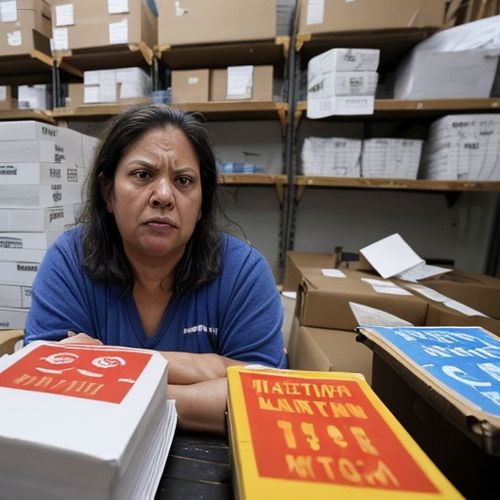In the realm of corporate cybersecurity, the story of Michael Scheuer serves as a stark reminder of the potential dangers lurking within the digital shadows. Scheuer, a former Disney employee, leveraged his insider knowledge to launch a series of malicious attacks on the company's servers, manipulating restaurant menus in ways that threatened public health and safety. His actions not only disrupted a major corporation's operations but also underscored the vulnerabilities that exist in even the most secure systems.
Michael Scheuer, a Florida resident, was sentenced to three years in prison last week for his cybercrimes. He was also ordered to pay nearly $690,000 in restitution, with the majority of that amount going to Disney. Scheuer pled guilty in January to one count of computer fraud and one count of aggravated identity theft. His lawyer, David Haas, stated that Scheuer remains remorseful and apologetic to his former co-workers. "We are grateful that the judge heard all of our arguments and mitigation when fashioning a sentence that was half of what the government was seeking," Haas said in a statement.
Scheuer's journey into the dark side of digital manipulation began with his role as a menu production manager for Disney. He was fired last June for misconduct, according to the original complaint. His job had granted him access to secure internal servers used for creating and publishing menus for all of Disney's restaurants. This access proved to be a double-edged sword, as Scheuer used it to wreak havoc on the company's systems.
Disney identified and removed all altered menus before they were shipped to restaurants, preventing any immediate harm to customers. However, the extent of Scheuer's actions was far-reaching and dangerous. He hacked into Disney's menu creation servers multiple times, manipulating and disrupting the menus in various ways. His actions included changing prices, adding profane language, and making changes that threatened public health and safety.
One of the most alarming aspects of Scheuer's hacking was his alteration of allergen information. He changed menu items that contained peanuts to indicate they were peanut-free, posing a potentially fatal risk to individuals with peanut allergies. This act of digital sabotage could have had catastrophic consequences, highlighting the critical importance of accurate allergen information in the food service industry.
Disney employees first discovered the disruption when Scheuer altered menu text fonts to become icon symbols, known as wingdings. "This change was so substantial that it caused the Menu Creator system to become inoperable while the font changes were made to all of the menus," the complaint stated. Disney was forced to take the Menu Creator application offline while they reverted to backups to regain operational control.
The Department of Justice (DOJ) revealed in a press release last week that Scheuer's "computer intrusions" also included altering menu information related to wine regions to reflect locations of recent mass shootings. This disturbing act of digital vandalism further demonstrated Scheuer's intent to cause chaos and distress.
In addition to manipulating menu content, Scheuer allegedly disabled employee accounts during his hacking campaigns. He locked at least 14 Disney employees out of their accounts by continually attempting to log on with incorrect passwords. He also used a bot to attempt over 100,000 logins to their accounts, rendering them unusable. This act of digital sabotage not only disrupted Disney's operations but also caused significant stress and inconvenience for employees.
The case of Michael Scheuer highlights several critical issues in the realm of cybersecurity. First, it underscores the importance of robust access controls and monitoring systems. Scheuer's insider access allowed him to bypass many of the security measures that might have otherwise prevented his actions. Companies must ensure that employees with access to critical systems are thoroughly vetted and that their activities are closely monitored.
Second, the case highlights the need for rapid response and recovery protocols. Disney's ability to identify and remove the altered menus before they were shipped to restaurants prevented immediate harm to customers. However, the disruption to the Menu Creator system and the subsequent downtime highlight the importance of having backup systems and recovery plans in place.
Third, the case underscores the human impact of cybercrimes. Scheuer's actions not only disrupted Disney's operations but also caused significant stress and inconvenience for employees. The psychological toll of such attacks cannot be underestimated, and companies must provide support for employees affected by cyber incidents.
Finally, the case of Michael Scheuer serves as a cautionary tale for other would-be cybercriminals. His sentence and the significant financial restitution highlight the severe consequences of engaging in such activities. Cybercrimes are not victimless offenses; they have real-world impacts on individuals, businesses, and society as a whole.
The case of Michael Scheuer and Disney is a stark reminder of the potential dangers of cybercrimes and the importance of robust cybersecurity measures. Scheuer's actions, while ultimately thwarted, had the potential to cause significant harm. His sentence and the financial restitution serve as a reminder of the severe consequences of such actions. As companies continue to navigate the digital landscape, they must remain vigilant and proactive in protecting their systems and their employees from the dark side of digital disruption.

By Eric Ward/Apr 29, 2025

By Jessica Lee/Apr 29, 2025

By Lily Simpson/Apr 29, 2025

By Amanda Phillips/Apr 29, 2025

By James Moore/Apr 29, 2025

By Amanda Phillips/Apr 29, 2025

By Sophia Lewis/Apr 29, 2025

By Ryan Martin/Apr 29, 2025

By Elizabeth Taylor/Apr 29, 2025

By Noah Bell/Apr 29, 2025

By Emily Johnson/Apr 29, 2025

By Grace Cox/Apr 29, 2025

By Rebecca Stewart/Apr 29, 2025

By Elizabeth Taylor/Apr 29, 2025

By Michael Brown/Apr 29, 2025

By Olivia Reed/Apr 29, 2025

By Daniel Scott/Apr 29, 2025

By Joshua Howard/Apr 29, 2025

By Megan Clark/Apr 29, 2025

By John Smith/Apr 29, 2025